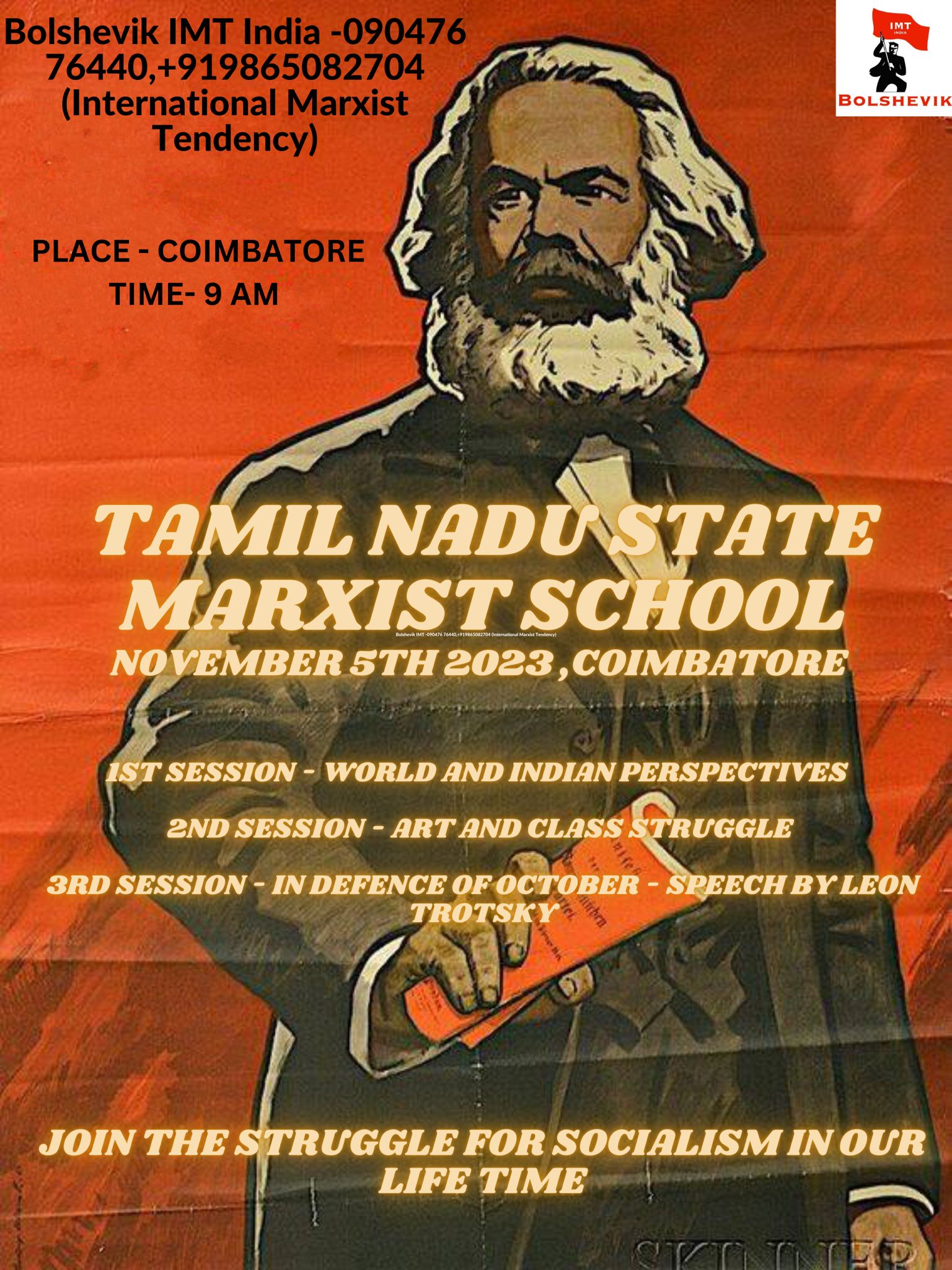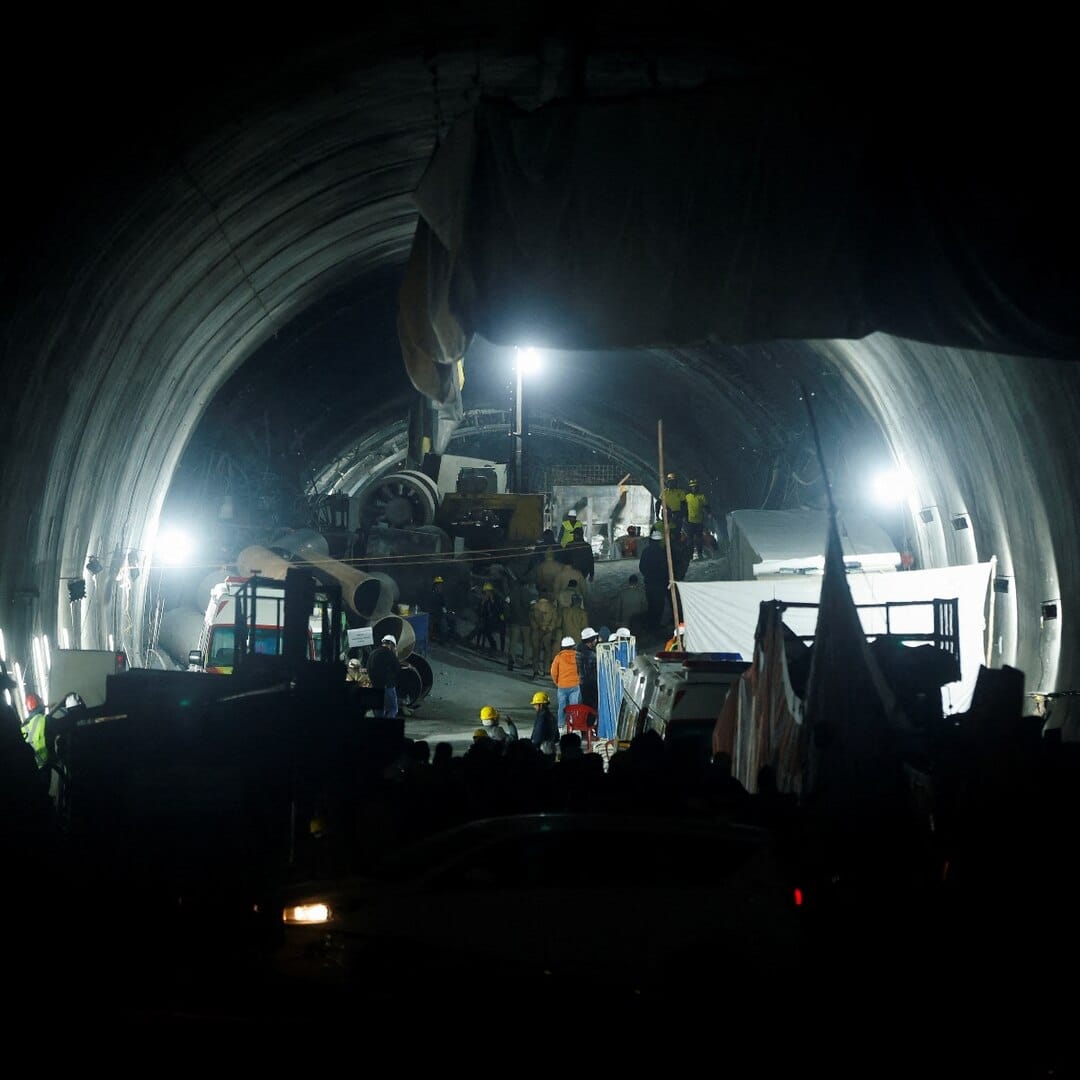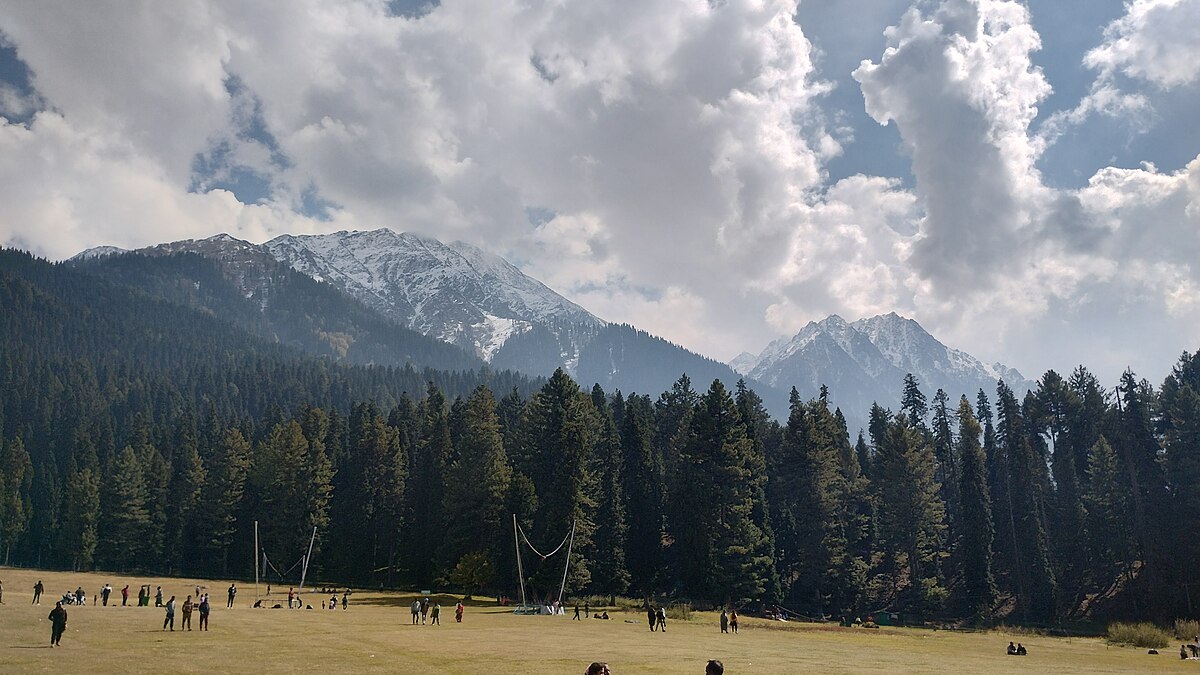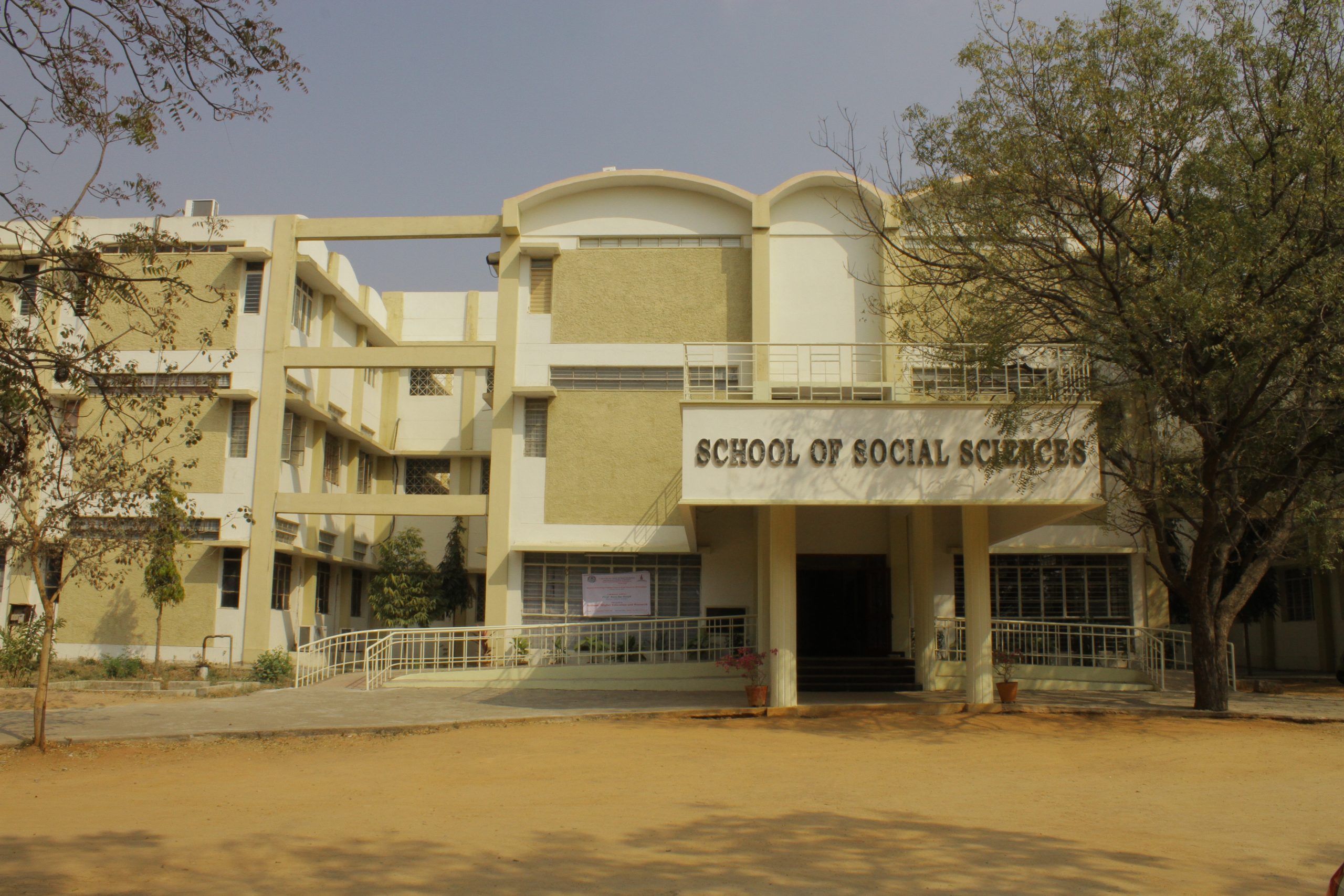The second state Marxist school of Bolshevik IMT India, Tamil Nadu branch, was held last weekend in Coimbatore. Ten comrades participated in the school. Comrade Alaudeen, a legal advocate, joined the meeting from Pudukkottai, nearly more than 300 km from Coimbatore, and comrade Santhosh, a young lawyer who had his exams on the previous day, had to rush from Madurai, which also is more than 200 km from Coimbatore.

The school was attended mostly by young advocates and workers. The first Marxist school was also held at Coimbatore in the year 2022, where comrades came from as far as Chennai and other rural districts of Tamil Nadu. The Marxist school this year commemorated the Russian Revolution.

The first session started with a lead-off on art and class struggle by comrade Louis Thomas, and Comrade Alaudeen chaired the meeting. The discussion covered a speech given by comrade Alan Woods on art and revolution. Louis spoke on the development of art in ancient society, its ascendence at the height of slave society, the subsequent decline in the feudal times, how art achieved huge heights during bourgeois revolutions in Holland, England and France, and then again after the socialist revolution in Russia. Thereafter, under Stalinism in the USSR and East European countries, free speech and creativity were curtailed and controlled.

Comrade Ram, who is also a filmmaker, contributed to the discussion by stating how art has been commercialised and has become a medium of profit. Comrade Alaudeen explained how most movies today reflect the class contradictions in society. However, we have seen a trend of films and filmmakers aspiring to bring class struggle and even revolutionary ideas in their movies. This is because there has been growing interest in communist ideas among youth because of the crisis in capitalism.

The discussion ended with the note that, under capitalism, there is no time for the working class to spend on creative pursuits, meaning art can reach its highest potential only under socialism, where wage slavery, profit and market anarchy have been abolished.

The second session was chaired by Louis Thomas, and comrade Santhosh gave the lead-off. He spoke about the relative weakening of American imperialism, with rival powers like China competing for markets and control over spheres of influence, with China having also developed into an imperialist state. The Ukraine-Russian war is, in fact, a proxy war between American imperialism and Russian imperialism.

He also spoke of the Israeli war on Gaza and how the United Nations is a spineless organisation whose predecessor, the League of Nations, Lenin, castigated. He also spoke on the current situation in India, the anti-people Modi regime, and the need for the working class to organise strikes and movements against the BJP government.
Comrade Alaudeen contributed to the discussion by emphasising the condition of the masses in Kashmir and Manipur and how there is a continuing genocide there. Louis spoke about the farmers’ protest against Modi’s reactionary agricultural laws and the revolutionary movement in Sri Lanka. He stated that working-class movements in India, though strong, are under the leadership of Stalinist parties, which trail behind capitalist parties like Congress and DMK. The workers, therefore, lack revolutionary policy and leadership.
Following a lunch break, the third session commenced on the Russian Revolution, which Alaudeen chaired, and Louis gave the lead-off. He spoke about a speech given by Trotsky, “In Defence of October”, the theory of permanent revolution, and on conditions of Russian society, which were more backward than India today.

He covered aspects of the 1917 Russian Revolution from February to October. He detailed the betrayal of the Mensheviks and Social Revolutionaries, who trailed the capitalist parties, and how the Bolsheviks, who were a minority, became the majority in the Soviets in October due to their consistent revolutionary policy.
Thereafter, the Russian Revolution was under siege due to a civil war in which 21 armies invaded the Soviet Republic to support the counterrevolution. Nevertheless, Russian peasants, soldiers and workers defeated the White Army. The civil war took a huge toll on the economy due to the destruction it caused. Millions died in famine and war. During the war, rival factions like Mensheviks and the Kadet party were eventually banned due to their support for the counterrevolution. But it was only an interim measure intended by Lenin during the war.

A party congress was held every year, even during the war, before Stalin smothered Soviet democracy. Despite the limitations imposed by the Stalinist bureaucracy, i.e. mismanagement and corruption, the isolation of the revolution, and false policies like socialism in one country, the Soviet Union achieved huge advancements in health, education, industry and technology. Unlike capitalism, it achieved development equal to America, without unemployment and inflation. But later, the bureaucracy became an absolute fetter in developing productive forces and led to a return to capitalism in 1990.
Comrades contributed to the discussion with questions about socialism in one country and the role of Stalin. It was clarified that Marx, Engels, Lenin and Trotsky were all internationalists, and capitalism isn’t a national phenomenon but rather a product of history that has not always existed and need not always exist.

Comrade Dharmalingam concluded the Marxist school from the Coimbatore branch and thanked comrades who came from far-off places and other comrades who joined the school.
He emphasised that more Marxist schools will have to be conducted to develop the theoretical level of all our comrades and to bring in interested youth and organise them in branches.
The Marxist school concluded with slogans in solidarity with Gaza and the victims of Israeli aggression.












